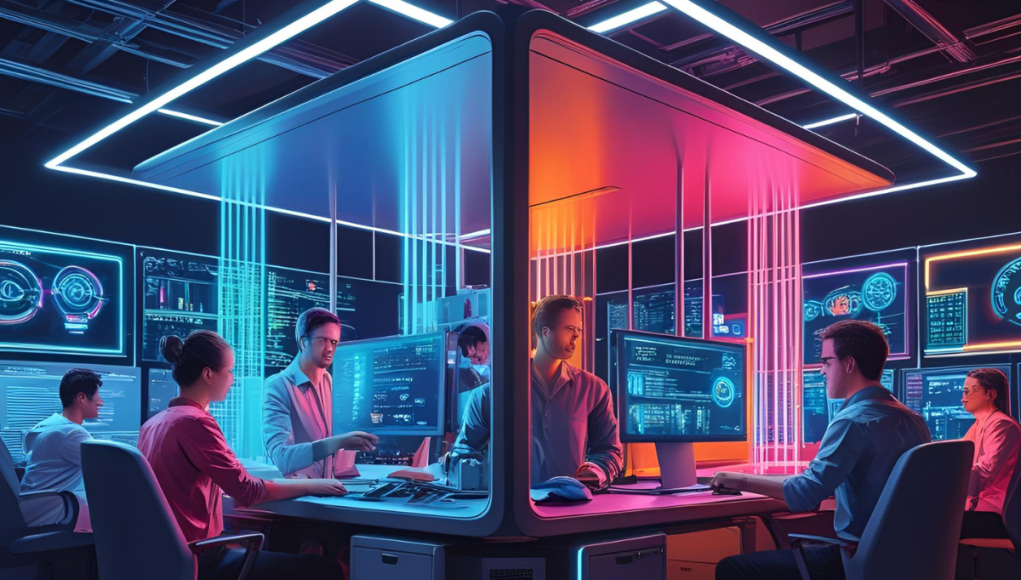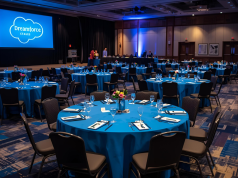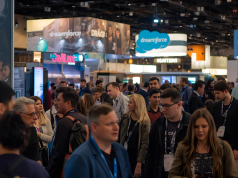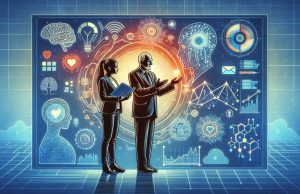The traditional office cubicle, once a symbol of quiet productivity, is rapidly becoming an anachronism. As Artificial Intelligence sheds its nascent skin and transforms into a powerful co-pilot, the very nature of “work” is undergoing a profound metamorphosis. OpenAI CEO Sam Altman, a visionary who often sees beyond the horizon, recently mused on X, “Maybe the jobs of the future will look like playing games to us today, while still being very meaningful to those people of the future.” This isn’t just a quirky observation; it’s a profound forecast for engagement, skill development, and the very structure of our professional lives.
AI is automating the mundane, the repetitive, and the data-intensive tasks that historically consumed countless human hours. As the grind shifts to machines, the human role elevates from laborer to strategist, from performer to commander. The office of tomorrow won’t be a factory floor for information; it will be a dynamic command center, where engagement is paramount, every task has a purpose, and success feels remarkably like leveling up in a complex strategy game.
The Grind is Gone: AI as Your Ultimate Grunt Work Eliminator
For decades, many jobs were defined by repetition. Data entry, routine analysis, basic report generation – these were the foundational tasks. But as AI, particularly generative AI, matures, these functions are precisely what it excels at. IBM notes that AI assistants and agentic AI are already performing complex tasks with minimal human supervision, from extracting information to executing multi-step processes independently. They are freeing human workers from repetitive activities, allowing for higher-level focus. This transformation isn’t just about efficiency; it’s about fundamentally redesigning the human role.
Imagine a world where your AI assistant handles email triage, drafts initial reports, generates code snippets, and even manages your calendar. This isn’t science fiction; it’s increasingly our daily reality. When the tedious, soul-crushing elements of work are offloaded to algorithms, what remains? The truly human elements – the strategic, creative, empathetic, and relational aspects that AI cannot replicate. This sets the stage for work to become less about “toiling” and more about “playing” in the sense of engaging with complex challenges.
Reimagining Engagement: From Tasks to Quests
The concept of gamification in the workplace has been around for a while, often manifested in simple leaderboards or point systems. But with AI, gamification evolves from a superficial overlay to an intrinsic design principle for work itself. As a ResearchGate paper from January 2025 highlights, immersive gamified workplaces leverage technology, social interaction mechanics, and user experience design to boost engagement, productivity, and skill development. AI integration takes this to the next level, offering:
- Personalized Missions and Challenges: AI can dynamically tailor tasks and learning pathways based on an individual’s strengths, weaknesses, and preferred learning style. Just like a video game adapts difficulty to the player, AI can provide adaptive coaching, offering tips and hints when an employee struggles, as noted by a TCS blog this week. This transforms a generic to-do list into personalized “quests.”
- Dynamic and Real-Time Feedback: No more waiting for annual reviews. AI provides instant recognition and contextual feedback, similar to a game’s immediate score or progress bar. This real-time loop, emphasized by TCS, allows for proactive adjustment and continuous improvement, making learning and growth feel like a constant progression.
- Meaningful Objectives and Progression: With routine tasks handled, humans can focus on high-impact, forward-looking work aligned with long-term goals. As a Microsoft Tech Community blog from June 2025 points out, when work is meaningful, employees are nearly four times less likely to leave. This elevation of purpose, akin to a game’s overarching narrative or ultimate objective, makes work inherently more engaging.
- Immersive Learning and Collaboration: AI, combined with AR/VR, is creating simulated work environments for training and problem-solving, making skill acquisition feel like an interactive simulation rather than a dry lecture. AI-driven gamification can also foster teamwork by optimizing team composition and encouraging collaboration through social interaction features, as per TCS.
Soft Skills: The New Power-Ups
In this gamified, AI-augmented future, the “power-ups” you need are increasingly your soft skills. While AI excels at processing data and executing defined tasks, it inherently lacks human attributes. Proaction International and General Assembly both recently emphasized the growing importance of soft skills in the AI era. These are the critical differentiators that elevate human performance:
- Critical Thinking & Problem-Solving: AI provides answers, but humans question assumptions, identify biases, and evaluate results. You become the ultimate “debugger” for AI’s outputs, ensuring their relevance and ethical application. As British Council states, it’s about breaking down complex data, evaluating from different angles, and making informed decisions.
- Creativity & Innovation: AI generates within frameworks; humans break them. Our capacity for imagination, divergent thinking, and novel concept creation remains unmatched. This makes creativity an “unlimited resource” power-up in the AI age.
- Emotional Intelligence & Empathy: Understanding human motivations, managing team dynamics, and navigating complex client relationships are uniquely human domains. These skills are crucial for optimizing human-AI collaboration and fostering inclusive work environments.
- Communication & Collaboration: Effectively communicating AI’s insights to non-technical stakeholders, fostering cross-functional teamwork, and influencing decisions require nuanced communication and collaboration skills. You become the “interface” between AI and the human world.
- Adaptability & Learning Agility: The rapid evolution of AI means constant change. The ability to pivot, learn new tools, and embrace new processes quickly is the ultimate meta-skill, ensuring you can continuously level up.
These are the skills that transform a “cubicle worker” into a “command center operative,” making complex decisions, strategizing, and collaborating in ways that feel more akin to navigating a high-stakes video game.
From Player to Game Designer: Rethinking Talent and Development
This shift demands a fundamental rethinking of how we educate, hire, and develop talent. Sam Altman’s vision suggests that what we consider “work” will gain a new dimension of inherent enjoyment and purpose, much like playing a strategic game.
- Education for the “Play-Like” Future: Educational institutions must prioritize interdisciplinary learning, blending technical AI fluency with robust development of critical thinking, creativity, and communication. The goal is to cultivate professionals who are adept at using AI as a tool while excelling at uniquely human tasks.
- Hiring for Potential and Power Skills: Employers need to move beyond checklists of technical certifications and instead prioritize candidates who demonstrate strong soft skills, adaptability, and a genuine eagerness to learn. Assessment centers, simulations, and project-based interviews will become more common than traditional resume screenings.
- Continuous Leveling Up: Organizations must foster a culture of continuous learning and experimentation. Providing employees with the time, resources, and psychological safety to explore new AI tools, try new approaches, and even “fail fast” will be crucial. As Microsoft’s blog highlights, providing resources and empathy for learning is key. This “training ground” mentality mirrors the progression inherent in games.
The future of work, indeed, promises to be more like a video game. Not in the sense of triviality, but in its potential for deep engagement, continuous challenge, meaningful progression, and the rewarding application of unique human talents. As AI handles the repetitive grind, our roles elevate to strategic “players” in a dynamic, evolving environment. The ultimate game, however, is building a fulfilling career in this exciting new world. Are you ready to play?




























